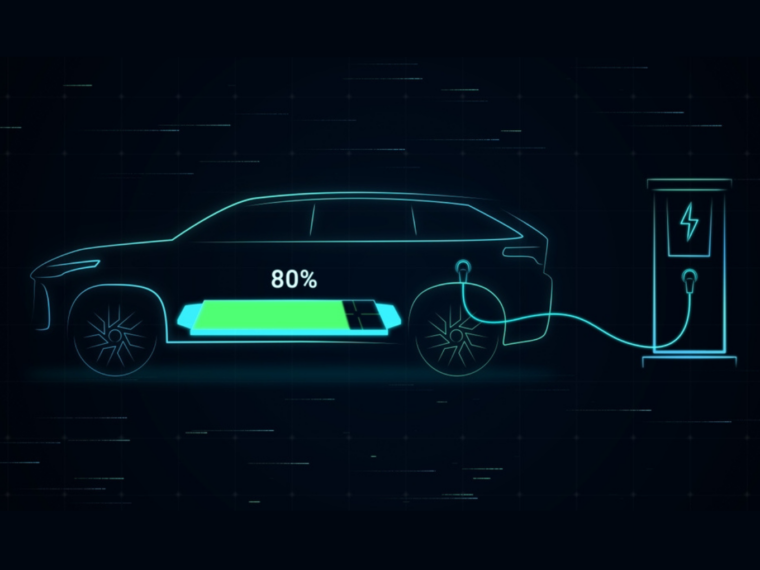
The government has come out with new standards for batteries of electric vehicles, which will come into effect in two phases, to increase safety, but they will result in a jump in the prices of batteries
As India is dependent on imports for lithium cells, the depreciation in the rupee’s exchange value vis-à-vis the US dollar has also increased the costs for EV batteries
As batteries constitute a major cost of EVs, the 5%-10%increase in prices of batteries is likely to result in about 3.5% increase in the cost of EVs from April 2023, according to experts
The rise in prices of metals used to make batteries for electric vehicles (EVs), a weakening rupee, and new standards for EV batteries, which would come into effect in two phases in the country, are likely to result in a 5%-10% increase in prices of batteries.
As electric batteries constitute a big component of the cost of EVs, the increase in battery prices is likely to result in about a 3.5% increase in the prices of EVs in the country, according to industry experts.
Anand Kabra, vice-chairman and MD of Kabra Extrusion Technik, said that input and compliance costs have significantly gone up for battery makers, and they will have to pass on the burden to customers.
Kabra Extrusion Technik is the parent company of Batterix, an advanced lithium-ion battery packs manufacturer.
“We will start seeing some price rise in not just the batteries, but the vehicles as well. The hike will happen as early as April. At the battery level, we see 5%-10%. Now, the battery is about 35% of the cost of the vehicle. So, about 3.5% in EVs, I would say,” he told Inc42.
New EV Battery Standards
Following fire incidents involving escooters of multiple EV manufacturers earlier this year, the Ministry of Road Transport and Highways had come out with amended AIS 156 and AIS 038 Rev.2 standards for batteries of different EV categories for better safety.
While the amended standards were to come into effect from October 1, 2022, the ministry later extended the deadline for the implementation of the new battery testing norms and said they would come into effect in two phases. While phase 1 would come into effect from December 1, 2022, phase 2 would be effective from March 31, 2023.
While the amended standards are expected to improve safety and increase trust in EVs, they will lead to increase in prices of batteries.
“Government has recently revised AIS 156 and AIS 038 for batteries, which is mandatory to avail PLI scheme benefit and Fame II scheme. This new norm mandates many changes at cell level, BMS (battery management system) and also at battery pack level which is going to further increase the prices of batteries drastically,” said Nemin Vohra, founder of EV manufacturer Odysse.
Weak Rupee Makes Batteries Costlier
Another factor that has added significantly to the input cost of electric batteries is the depreciation in the rupee’s exchange value vis-à-vis the US dollar.
“As everyone is aware, we are dependent on imports for the lithium cells. With the rupee weakening vs the US dollar and the growing price of metals like lithium, cobalt, and nickel, the battery price is increasing,” said Vohra.
The domestic currency has plunged to record low levels of 83 against the US currency and has lost about 8 per cent in 2022 so far. Forex observers expect the rupee to trade at the 83.50 level in the short-term. However, the currency volatility may not matter much to battery makers in the long-term as they are fast moving towards cent percent indigenisation.
Battery Ecosystem Is On A Localisation Drive
“There is a phenomenal drive by all original equipment manufacturers (OEMs) to localise components by March next year. They want 100% localisation of every component. Only components which will be imported, in my view, post-March 31 will be the cells. At present, there is no cell manufacturing in India, and that will come up in 2025 only,” Kabra said.
Big brands are all localising in a very big way, he said, adding that component suppliers are also happy selling to all the brands. “Except, in my view, the cells and maybe something related to electronics and semiconductors, you will see it totally localised.”
It must be noted that Ola Electric, the EV arm of cab aggregator Ola, signed an agreement with the Ministry of Heavy Industries in August for production of advanced chemistry cells for EVs in the country under the government’s production-linked incentive scheme. The startup has also announced plans to invest $500 Mn to set up a Battery Innovation Centre in Bengaluru, along with an R&D facility for EV battery cells.
New Battery Standards Welcomed By All
Despite the expected rise in cost, the EV industry believes that the new battery standards are in the interest of the sector.
It is a “phenomenal” standard that the government has come up with and the new norms are even better than the European standards, Kabra said.
Echoing similar sentiment, Vohra said that the EV players will have to make changes to their products, production system, sourcing, and certifications to a far stricter set of laws, which is not only exhaustive but also a costly affair.
“I believe that as a consequence of the new laws, public confidence in electric vehicles will increase and their use will increase considerably across the country. These regulations will ensure that every EV on the road is safest possible and this is crucial for promoting the switch to electric vehicles among the general public,” he added.
Asked about the impact of the rise in battery prices on EV adoption, Vohra said it would affect the industry that is already facing high inflation and may also have a slight impact on adoption of EVs.
“Batteries being a critical and expensive component to the product, the burden at the end for the increase will fall on the customers, which will cause them to give second thought before making any purchases,” he added.
Meanwhile, when asked how e-scooter manufacturers are likely to respond to the price rise, Kabra said they are okay with it. Looking at the macro factor, they have accepted the imminent price hike in batteries, he added.






























 Ad-lite browsing experience
Ad-lite browsing experience